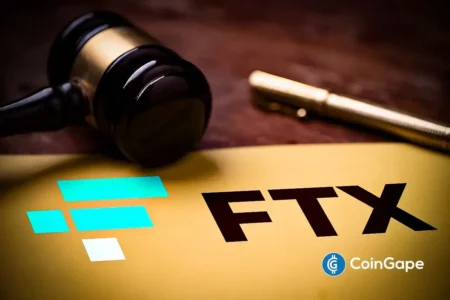Block, Inc. Faces $40 Million Settlement Over AML Compliance Issues: Implications for Cash App Users
Block, Inc., the parent company of Cash App, has recently settled with the New York Department of Financial Services (NYDFS) for an astounding $40 million. The settlement is the result of an investigation that uncovered notable deficiencies in Block’s anti-money laundering (AML) compliance, particularly concerning its management of Bitcoin transactions and customer due diligence practices. This significant fine serves as a warning signal to other digital payment platforms and emphasizes the increasing regulatory scrutiny on cryptocurrency-related operations.
The Investigation: AML Compliance Shortcomings
The NYDFS’s investigation revealed that Block’s AML compliance program was riddled with major flaws. Regulatory officials determined that the company lacked adequate controls to prevent money laundering and related illicit activities, especially in regard to its handling of Bitcoin transactions. This failure in customer due diligence meant that many largely anonymous transactions were allowed to proceed unchecked, raising red flags for regulators. Adrienne A. Harris, Superintendent of the NYDFS, stated, “Compliance functions require growth in order to scale with the size and scale of the company.” This highlights the need for companies to adapt their compliance programs alongside their growth trajectories to mitigate risks effectively.
Consequences of Rapid Growth
The NYDFS noted that the time frame between 2019 and 2020 saw Block Inc. expanding at a rapid pace, leading to a backlog in transaction alerts and responses. This surge in transaction volume compromised the company’s operational capabilities, making it more susceptible to criminal activities. The investigation underscored the critical importance of maintaining robust compliance systems as businesses grow, particularly in fast-paced sectors like fintech and cryptocurrency.
Previous Settlements and Commitment to Improvement
This recent $40 million settlement is not an isolated incident for Block Inc.; it marks the second major penalty related to AML compliance in just a short span. Earlier in 2023, the company agreed to pay $80 million to 48 state regulators over similar concerns. These ongoing issues demonstrate a pressing need for Block to enhance its compliance programs. In response to the findings, Block has heavily invested in compliance remediation and is working towards strengthening its internal mechanisms to avoid future violations. However, the company has notably refrained from accepting the investigation’s conclusions, which raises questions about its commitment to genuine improvement.
Regulatory Oversight and Continuous Monitoring
As part of the settlement agreement, Block Inc. must appoint an independent monitor to assess the effectiveness and progress of its compliance program. This external oversight will be crucial in ensuring that Block adheres to the regulatory expectations set forth by the NYDFS moving forward. Continuous monitoring will not only help Block demonstrate its commitment to compliance but may also restore customer confidence in its platform. In a landscape where financial fraud is rife, such measures are essential for assuring users that their transactions are secure.
Cash App’s Evolving Role in the Cryptocurrency Landscape
Cash App, which allows users to buy, sell, and transfer Bitcoin, has been under the regulatory radar since it became subject to NYDFS scrutiny as a virtual currency business in 2018. With the escalating popularity of cryptocurrencies, the NYDFS’s actions reflect a broader trend of increased regulatory attention directed toward digital assets. In line with this, Block has recently introduced an open-source toolkit designed to assist companies in better managing their Bitcoin treasury holdings. The toolkit, which includes valuable features such as a corporate Bitcoin holdings dashboard, aims to support businesses in navigating the complexities of cryptocurrency management.
Future Implications for Block Inc. and Its Users
The substantial fine imposed on Block Inc. serves as a cautionary tale for fintech companies operating within the volatile cryptocurrency market. With regulatory bodies tightening their oversight measures, firms must prioritize compliance to avoid costly penalties and preserve user trust. For Cash App users, this situation underscores the importance of understanding the compliance risks associated with digital transactions. As Block takes steps to improve its compliance framework, the future interplay between innovation in digital finance and regulatory requirements will be paramount. Both consumers and businesses within the cryptocurrency sector must remain vigilant as the landscape continues to evolve.
In summary, the settlement with Block Inc. highlights the importance of adhering to stringent AML compliance standards, especially in the fast-moving world of cryptocurrency. As the company navigates its regulatory obligations, stakeholders will be watching closely to see how it addresses its compliance failures and what measures it implements to safeguard against future issues.
















